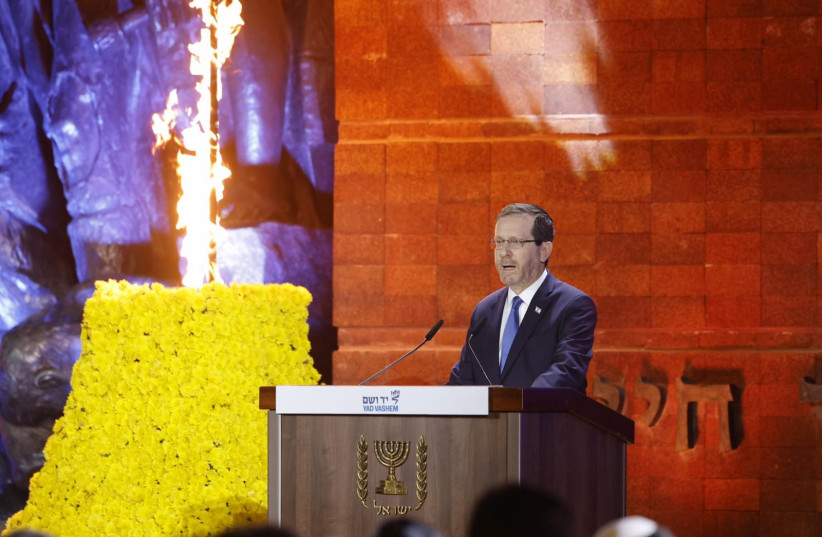In their passing, the six million Jews who were murdered, starved and tortured by the Nazis commanded us to live. Yet it does not suffice to simply live. The command comprises a need to cherish life in Israel, the gift given to the Jewish people following the horrors that our nation have faced throughout history and in particular, during the Holocaust.
This does not, for one moment, nullify the moral need to criticize the current affairs in Israel if and when needed, to continually strive to improve the country and its moral codes and to withstand any attempts made by any party to rule by corruption, inequality, manipulation or bigotry.
It does, however, demand that any such criticism be passed and expressed alongside tremendous respect for the mere existence of the state, however imperfect it may be and the comprehension that it is nothing short of a still much-needed sanctuary for the Jewish people.
Israel and Holocaust Remembrance Day
I read of an idea (promoted by the anchor Avri Gilad) to fast during Holocaust Remembrance Day in Israel and found much favor in this suggestion. It will allow Israelis and in particular, the younger generation to taste, even for a mere moment, the hunger and strife that our people had to suffer.
It will also serve to give the citizens of Israel a much-needed perspective, particularly given the current affairs in the country, regarding what it is that we have in our hands and that under no circumstances should we take it for granted.

Undoubtedly, Israeli society knows and recognizes the need to unite, even if momentarily, on Holocaust Remembrance Day in order to pay respects to the victims of the Holocaust and its horrors. Ceremonies take place throughout the country within the framework of the IDF and in educational institutions.
Furthermore, the siren that is heard throughout the country and the fact that an entire country stands still for two whole minutes is unequaled elsewhere in the universe. Each year, those moments bring tears to my eyes and no amount of cynicism will succeed in diminishing the emotion that fills me when witnessing the respect we pay as a people to our brothers and sisters who were brutally exterminated simply because they were Jewish. For 120 seconds, the entire Jewish population of Israel stands united.
Yet we must examine whether the entire Israeli society is, indeed, united in honoring this issue. Does the Arab minority in Israel know enough about this episode in Jewish history? Is the subject taught thoroughly enough in Arab schools? It is, of course, part of the syllabus, yet this does not always withstand the test of reality on the ground. Do Arab-Israeli youth meet Holocaust survivors?
Empathy is a strong human emotion that may serve as a potential human glue and succeed in creating bridges even between far extremes. The young Arab men who stood beside me during the recent siren epitomize the gapping of this bridge and demonstrate a mutual humane respect for those who had lost their lives but many in the Arab Israeli society are not at all connected to that part of our history and national identity and have little or no empathy to the Israeli-Jewish narrative and psyche, which is borne out of that collective pain.
Despite the chasm that we are currently witnessing in Israeli Jewish society, one cannot ignore the many rays of light within it: many NGOs and civil society groups extend their hand in help to the poor, to those who experience violence, to the elderly and more. And yet, despite all of this, over 30,000 Holocaust survivors live below the poverty line in Israel. How can we let that happen?
With all due respect to the vast importance of ceremonies, moments of remembrance, sirens and passing the memory from generation to generation, how on earth does each and every one of us allow such a reality to exist? Let us translate our national pain into individual action and take personal responsibility to adopt one survivor, making sure that they do not feel one more moment of loneliness, hunger, fear or need.
The writer, a former MK, was the founder and co-chair of the first Abraham Accords Caucus in the Knesset. She has been appointed the chairperson of the newly established Women’s Impact Forum of the World Jewish Congress.
